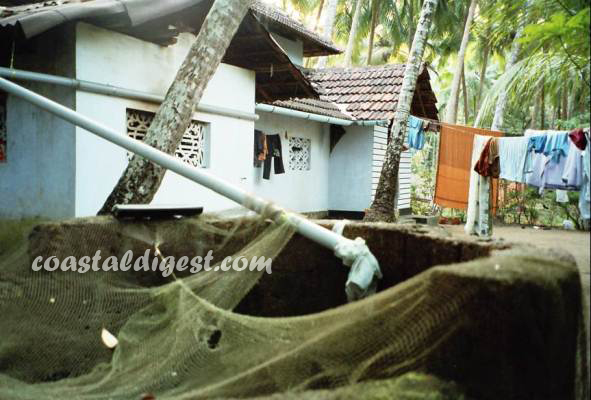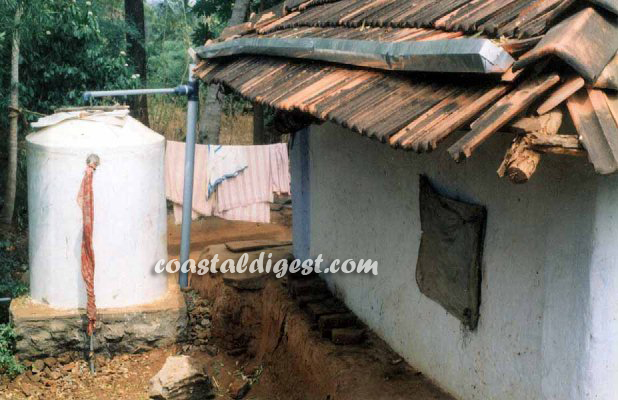The last summer Mangalore witnessed was one of the worst it had seen in many years. For a good two to three months, the city struggled for water and the plummeting of level at Thumbe Dam to alarming levels only compounded problems. The city finally received the much needed and anticipated showers, although there are a few who feel that the amount of rain that has hit the district so far has not been encouraging in terms of what lies in store for summer.
Come April/May and water woes start reverberating from all parts of the district. While fingers are pointed at the district administration and the government for the delay in Thumbe vented dam project on one hand, the Mangalore City Corporation on the other comes under severe criticism for not addressing the constant water supply problem adequately. This time around it is even giving some serious thought on drawing water from Lakya Dam in Kudermukh to Mangalore. Fair enough, citizens have a point in blaming the administration. But authorities’ negligence notwithstanding, citizens can play their own little role in addressing summer water woes. And that time is now.

Dakshina Kannada and Udupi districts being areas that receive heavy rainfall during rainy season, there is ample scope for people to adopt rain water harvesting methods that can come more than handy during summer in terms of raising the water table level. Water gushing on roads and being pumped out of house compounds during rainy season is a common sight in DK and Udupi. If an attempt is made to allow it to be absorbed in the soil and percolate, thereby increasing ground water level, instead of merely allowing it to join the sea, it can help immensely in ensuring that wells do not dry up in summer and there is better availability of water when it is needed the most.
Says Shree Padre, veteran rain water harvesting expert from Vittla: “The primary objective of rain water harvesting is to catch the rain where it falls and not allow it to wash away with soil. Nowadays we see a lot of muddy water flow during rains. It is an indication that because of deforestation, increase in urbanization and over use of ground water through borewells and so on, ground water level is not being recharged. No wonder the ground water level depletes during summer and you have wells drying up. Storage of water in rain is like depositing money in the bank. You get to use them in times of need”.
And there are a few in and around Mangalore who have tried rain water harvesting methods such as diverting rain water falling on house roofs to wells, to good effect. The water falling on the roof is diverted to the well through pipes with simple filtering in between.“I have been using this method from the last 10 years and the results have been positive. The ground water level has increased and we can make it out in summer. Compared to others’ wells, our well water level during summer would be higher. In fact, just a year after I started using this method, I saw a rise in the well water level that summer”, says Manohar Upadhyay of Mangalore.
 The methods are simple and inexpensive too. Even the poor can adopt such methods to meet their water needs in summer.
The methods are simple and inexpensive too. Even the poor can adopt such methods to meet their water needs in summer.
The coastal districts of DK and Udupi provide ample scope for rain water harvesting. “The standard calculation is that 1 mm of rain falling on 1 sq.mtr makes 1 litre of water. In Dakhsina Kannada district, we receive 3,500 mm of rain which means that 1 acre of land gets 1.4 crore litres of water. A person with 5 cents of land will have 7 lakh litres of water in DK. If a person spends water judiciously, he will get more water falling on his roof than what is required for his family for the whole year. This roof water when diverted to wells and other storage units, comes in handy during summer”, says Mr. Padre.
Bigger establishments like schools, colleges, temples, churches etc can also implement the concept of ‘recharge wells’, Mr. Padre opines. “Educational institutions like St Aloysius College in Mangalore and colleges in Deralakatte which are on hilly areas or higher areas can implement the concept of recharge wells instead of simply allowing rain water to flow down the hill and join the sea”, says he.
Sadly, the concept of borewells has crept into people’s mind a bit too much, Mr. Padre feels. “Borewells have contributed in the depleting of ground water level. Besides, more borewells than required have been dug over a period of time. They are not the only solution to the problem of drying up of wells. We have cheaper solutions which ensure more sustainability. Everyone wants a borewell and people think that the era of open wells is over which is far from truth”, says he.
No doubt, citizens can help themselves with rain water harvesting methods. But at the same time, the district administration and the MCC can also contribute in creating recharge wells too. By creating little recharge sources, water flowing in through the drainages can also be percolated with some filtering. “It should be considered as an important component of the town planning by authorities”, feels Mr. Padre.
Time to give frog weddings a break!














Comments
Nagraj sir,
u can't directly route the terrace water for that filter is there, for any enquiry regarding this please contact [email protected] or visit www.prakruthienterprises.in
This post is worth everyone's attention. When can I find out more?
my website :: Luann: http://forgedred.ampedpages.com/
Add new comment